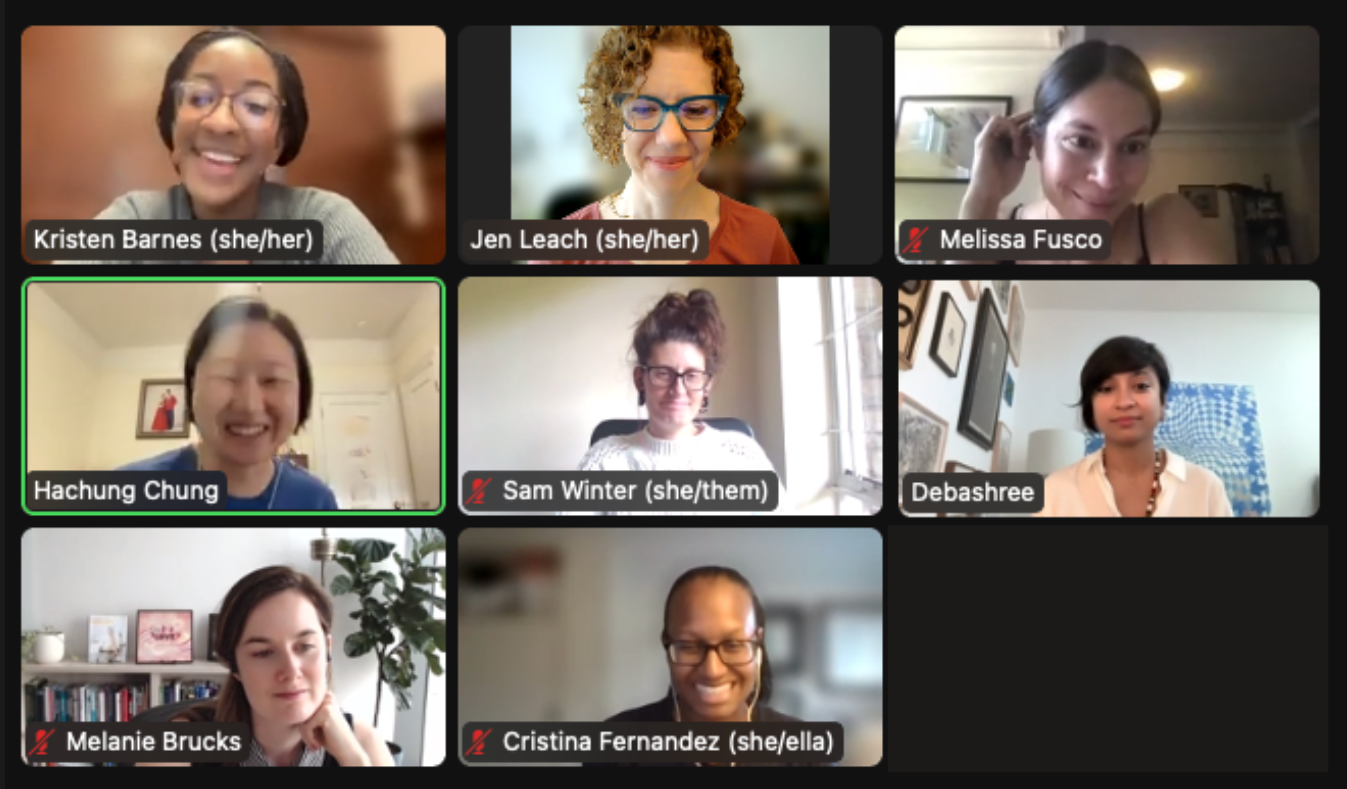Accountability Group Offers Peer Support for Faculty Writing Projects
The Writing Accountability Group offers faculty a virtual space—and peer support—to meet their writing goals.
What do faculty in fields as diverse as pediatric gastroenterology, philosophy, film and media studies, marketing, and French literature have in common? They are all members of the Faculty Writing Accountability Group (WAG), a project launched this September by the Office of the Vice Provost for Faculty Advancement. A total of 19 faculty in three cohorts meet biweekly via Zoom to share their successes and frustrations—and to cowork in silence for an additional hour. At the close of each meeting, members set goals for the next session via Slack chat, and offer real-time encouragement between sessions.

Designed and facilitated by Kristen Barnes, Associate Director for Faculty Diversity and Inclusion, and Jen Leach, Associate Director for Faculty Advancement, the initiative has two major goals: to provide faculty with dedicated time to focus on their writing and to build community among faculty from different disciplines. Due to the online format, faculty conducting international research in France and Kenya have been able to join the group. Projects vary in format and content, and include monographs on South Asian cinema; birdsong and eroticism in Medieval literature; and the history of famine in India, and papers on social determinants of health; creativity, determinism and free will; and barriers to accessing online healthcare. Several faculty are working on grant submissions or revisions as well.
Though the facilitators set the overall structure for the sessions, suggestions from the faculty are encouraged. “The faculty asked us for an additional coworking session on the days we don’t meet, and this was easy for us to do,” said Kristen Barnes. “They also asked us about project management software to track their progress, and we were able to set up a free project on the app Todoist.”
Faculty feedback about the program has been positive. Gissette Soffer, Hebert Irving Assistant Professor of Medicine at CUMC, noted that “the program has helped me tease out priorities and stay on schedule with deadlines. In the first three weeks I finalized a review and I am currently working on data review and discussion for one additional manuscript. It has been great to spend a couple of hours with peers that I would generally not be exposed to.“ Yamile Marti, Associate Professor of Professional Practice in the Faculty of Social Work, is writing an article on the US healthcare system. For Marti, “the idea of having a set time and environment to write has been very productive. Joining colleagues from different disciplines and learning their challenges and strengths through the writing process has been an incredible support.”
The Fall semester was merely a pilot, and the goal is for groups to become completely self-sustaining. Through the use of Slack, faculty will be able to maintain contact and schedule future online meetings.
Faculty participants received a small ‘writer’s care package,’ a tote bag containing a notebook and pen, to kick off the sessions.
Faculty who are interested in participating in the Spring semester should email the Faculty Advancement team at [email protected].